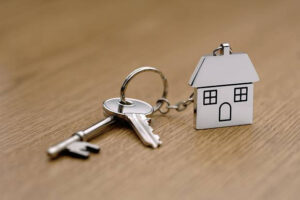
Purchasing your first home is a significant milestone and one of the most substantial financial investments you’ll make in your lifetime. However, the journey doesn’t end at closing day. Understanding your responsibilities as a homeowner is essential to protecting your investment, maintaining property value, and avoiding costly surprises that can strain your budget.
Many first-time buyers focus exclusively on securing their mortgage and finding the perfect property, but successful homeownership requires ongoing attention to maintenance, financial planning, and risk management. The decisions you make in your first year can significantly impact your long-term financial health and home equity.
Key priorities every first-time homeowner should address:
✅ Schedule a comprehensive home inspection – Even after closing, a thorough professional inspection provides a clear assessment of your property’s condition. This detailed evaluation identifies potential issues with structural integrity, electrical systems, plumbing, roofing, and HVAC equipment. Use this report to prioritize repairs, plan your maintenance budget, and establish a baseline for future reference. Understanding what you’re dealing with from day one prevents unexpected emergencies and helps you budget appropriately.
✅ Budget for ongoing expenses beyond the mortgage – Your monthly mortgage payment represents only a portion of true homeownership costs. Property taxes can range from 0.5% to 2.5% of your home’s value annually depending on location. Homeowners insurance typically costs $1,200-$2,000 per year. If your property is part of a homeowners association, monthly HOA fees can range from $100 to $500 or more. Utilities often run higher than rental properties. Most importantly, establish a maintenance reserve fund equal to 1-2% of your home’s purchase price annually to cover repairs, replacements, and upkeep.
✅ Maintain organized and accessible records – Create a centralized filing system, both physical and digital, for all essential documents. This includes your closing disclosure, deed, title insurance, mortgage documents, home inspection reports, appliance warranties, contractor receipts, and insurance policies. Proper documentation is crucial for filing insurance claims, claiming tax deductions for home improvements, resolving title issues, and providing maintenance history to future buyers. Keep these records for the duration of your ownership, with some documents requiring permanent retention.
✅ Implement a preventive maintenance schedule – Proactive maintenance is far more cost-effective than emergency repairs. Develop a seasonal checklist that includes HVAC system servicing (twice annually), gutter cleaning (spring and fall), roof inspections, water heater maintenance, checking for foundation cracks, testing smoke and carbon monoxide detectors, and inspecting weatherstripping and caulking. Small investments in preventive care can prevent thousands of dollars in damage from water intrusion, system failures, and structural deterioration.
✅ Delay major renovations and personalization projects – While the temptation to immediately customize your new space is natural, experienced homeowners recommend living in your property for at least 3-6 months before undertaking significant renovations. This waiting period allows you to understand traffic patterns, natural lighting, climate control needs, and storage requirements. You’ll make more informed decisions about layout changes, finishes, and upgrades when based on actual experience rather than initial impressions. Focus initially on safety issues, critical repairs, and deep cleaning before cosmetic improvements.
✅ Secure comprehensive insurance and warranty coverage – Homeowners insurance is typically required by your lender and protects against major losses from fire, theft, natural disasters, and liability claims. However, it doesn’t cover mechanical breakdowns or normal wear and tear. A home warranty, which costs $300-$600 annually, covers repair or replacement of major systems and appliances like HVAC, water heaters, electrical systems, and kitchen appliances. This dual-layer protection provides financial security during your first years of ownership when unexpected failures are most likely to occur.
✅ Avoid common first-time homeowner mistakes – Establish an emergency fund covering 3-6 months of expenses before tackling discretionary improvements. Address small repairs immediately—a minor leak can quickly become extensive water damage and mold remediation. Understand every aspect of your mortgage including interest rate, payment schedule, prepayment options, and refinancing potential. Avoid over-improving your property beyond neighborhood standards, as you’re unlikely to recoup excessive investment. Finally, update your insurance coverage whenever you complete renovations or acquire valuable possessions.
Smart homeownership begins with informed decision-making, proactive planning, and realistic budgeting. By understanding these fundamentals and implementing sound practices from the beginning, you’ll protect your investment, build long-term equity, and enjoy the benefits of homeownership without the financial stress that catches many first-time buyers unprepared.





